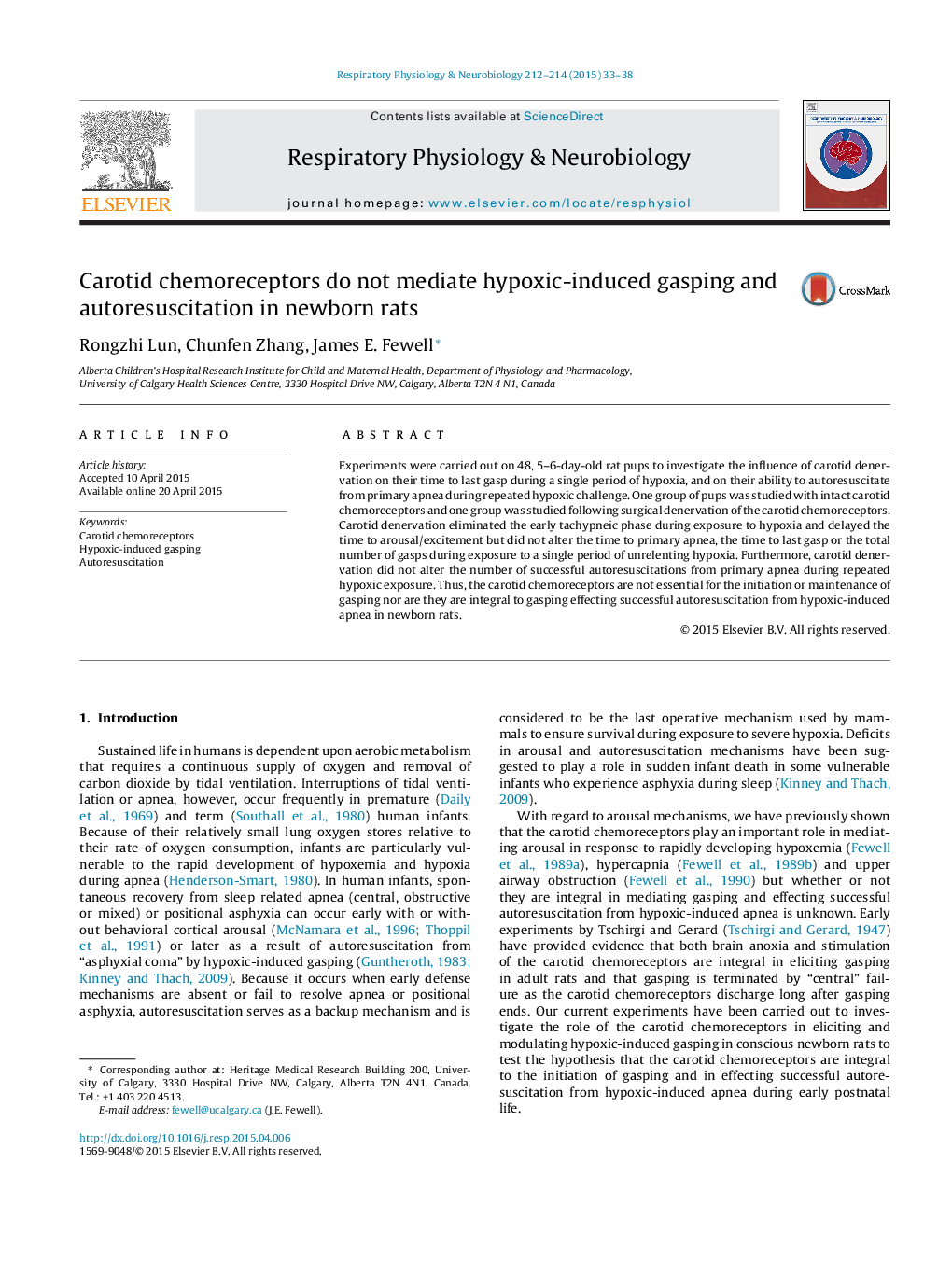| Article ID | Journal | Published Year | Pages | File Type |
|---|---|---|---|---|
| 2846801 | Respiratory Physiology & Neurobiology | 2015 | 6 Pages |
•Autoresuscitation by gasping is a survival mechanism during hypoxia.•Carotid denervation does not alter gasping during hypoxia.•Carotid denervation does not alter autoresuscitation during hypoxia.
Experiments were carried out on 48, 5–6-day-old rat pups to investigate the influence of carotid denervation on their time to last gasp during a single period of hypoxia, and on their ability to autoresuscitate from primary apnea during repeated hypoxic challenge. One group of pups was studied with intact carotid chemoreceptors and one group was studied following surgical denervation of the carotid chemoreceptors. Carotid denervation eliminated the early tachypneic phase during exposure to hypoxia and delayed the time to arousal/excitement but did not alter the time to primary apnea, the time to last gasp or the total number of gasps during exposure to a single period of unrelenting hypoxia. Furthermore, carotid denervation did not alter the number of successful autoresuscitations from primary apnea during repeated hypoxic exposure. Thus, the carotid chemoreceptors are not essential for the initiation or maintenance of gasping nor are they are integral to gasping effecting successful autoresuscitation from hypoxic-induced apnea in newborn rats.
